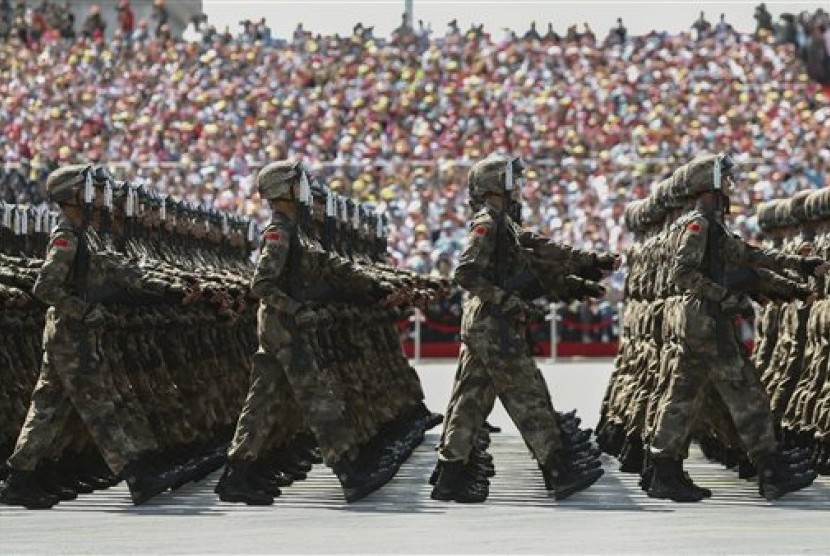REPUBLIKA.CO.ID, TOKYO -- Japan said Tuesday it had spotted for the first time a Chinese coast guard ship armed with cannon-like equipment near disputed East China Sea islands.
Japan and China have routinely butted heads over ownership of the uninhabited islets, as Chinese ships -- mostly coast guard vessels -- and aircraft have sometimes approached them to back up Beijing's claims and test Japan's response.
But this is the first time that Japan has spotted a Chinese coast guard ship with such equipment, a Japan Coast Guard spokeswoman said.
It was one of four Chinese coast guard vessels that entered Japan's contiguous waters on Tuesday near the Senkaku Islands, the Japan Coast Guard said in a statement, which included a photo of the Chinese ship.
Japan administers the uninhabited islands under that name but China also claims them and calls them the Diaoyus.
"The ship is seen carrying four pieces of equipment, two at the front and another set of two at the rear, which each seem to have something similar to a cannon," the spokeswoman told AFP.
Though the vessel did not enter what Japan considers its territorial waters around the islands, government officials saw the display of weaponry as provocative and filed a protest with China.
In November, Japan said it spotted a Chinese naval intelligence ship operating near the disputed islands for the first time.
Relations between Japan and China hit a low after Tokyo in September 2012 moved to increase its formal control by nationalising some of the islands.
But the countries -- Asia's two biggest economies -- have taken steps over the past year to improve ties.
They issued carefully worded statements on the dispute ahead of a summit in November last year in Beijing between Chinese President Xi Jinping and Japan's Prime Minister Shinzo Abe.
The two sides acknowledged they had different views on tensions emanating from the issue but agreed on the need for keeping them under control.
Distrust, however, remains high as China is wary of moves by Abe to raise Japan's military profile while Tokyo frets about Beijing's increasing regional and global assertiveness.


